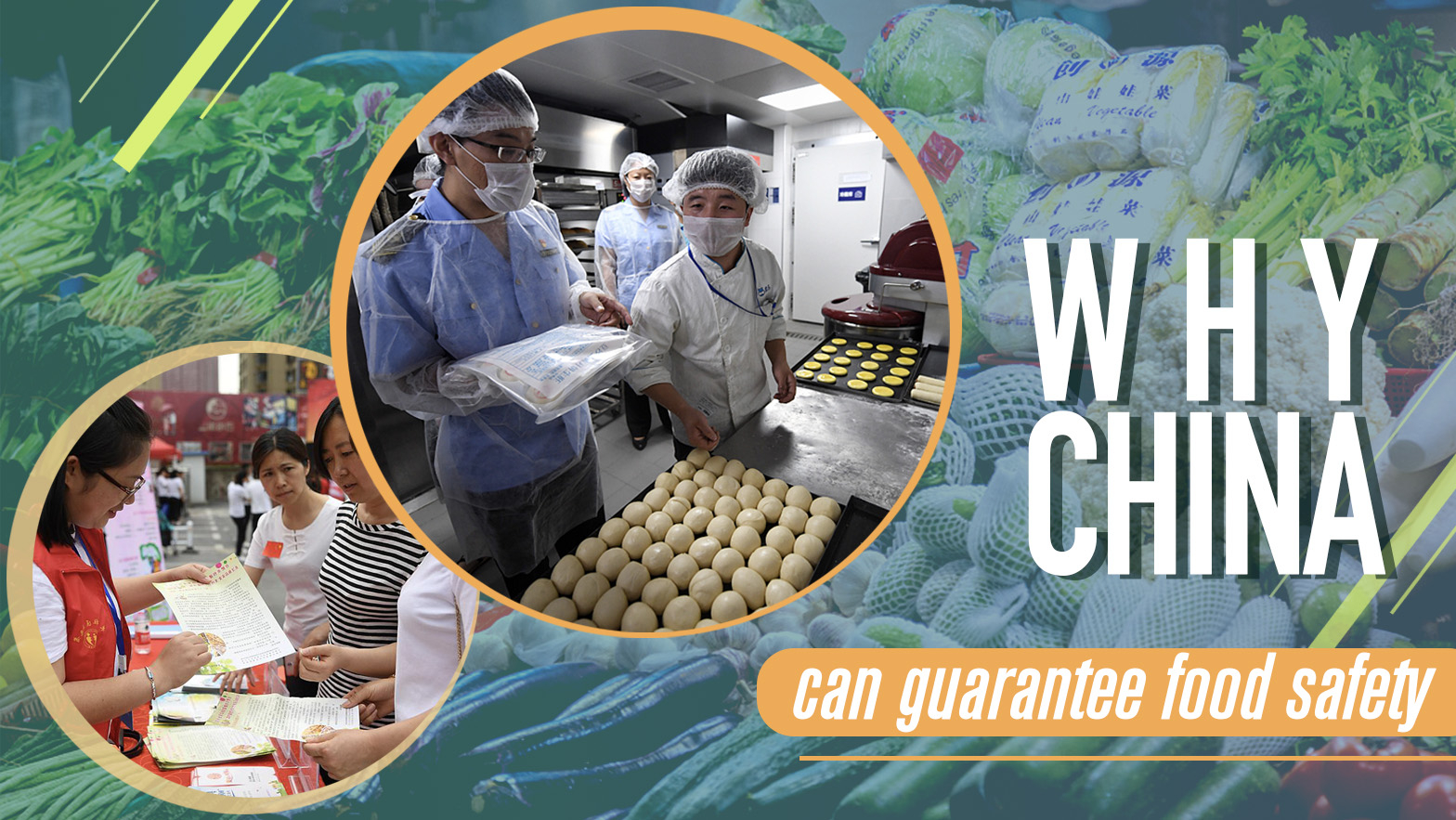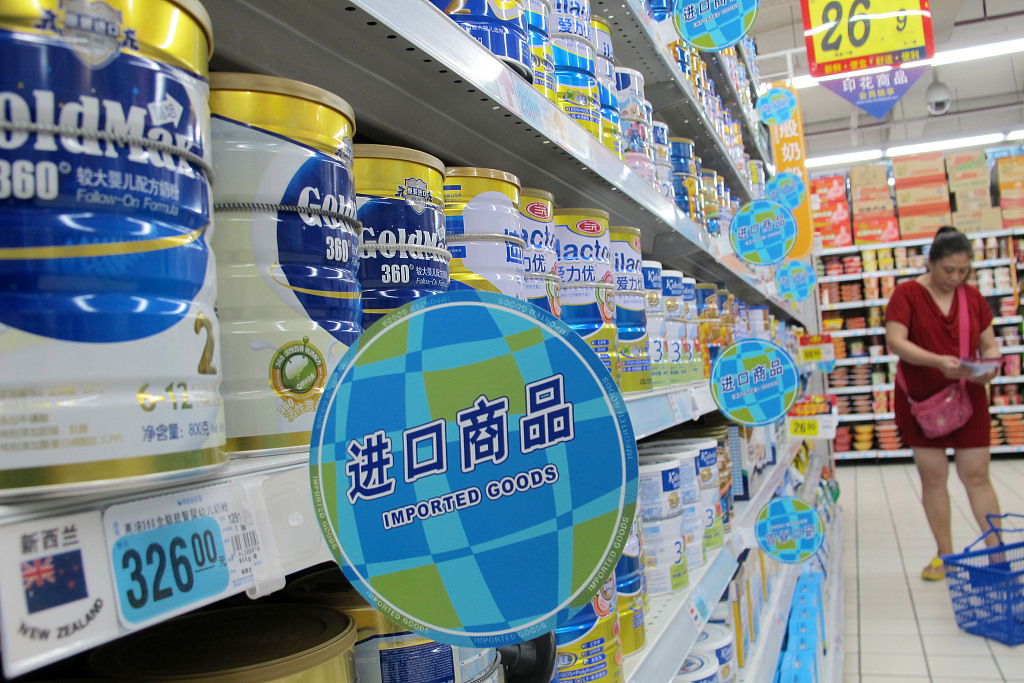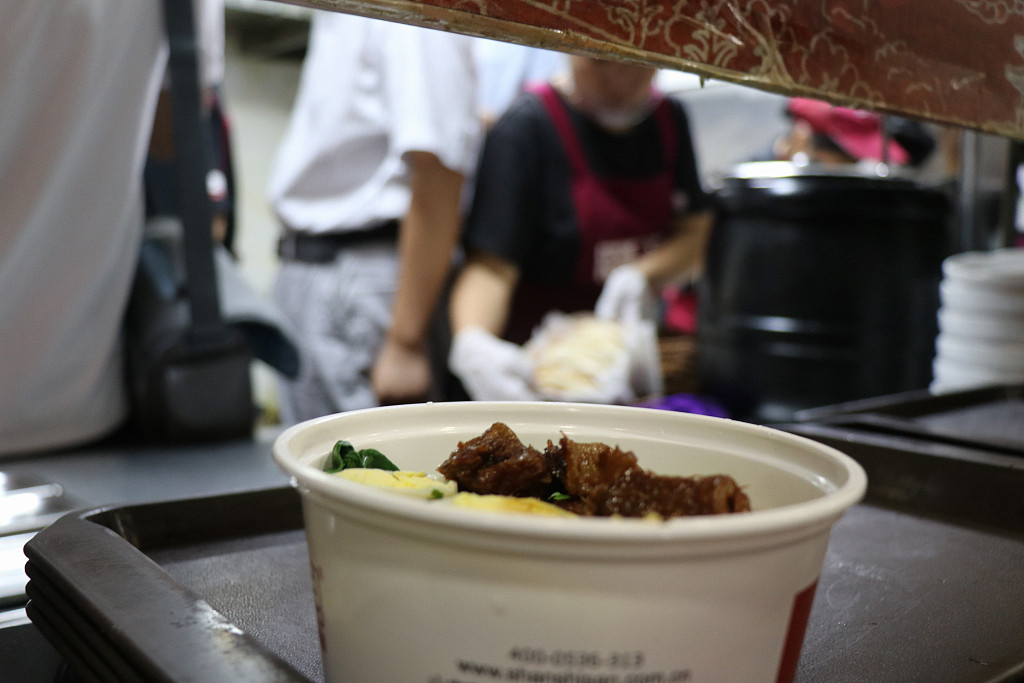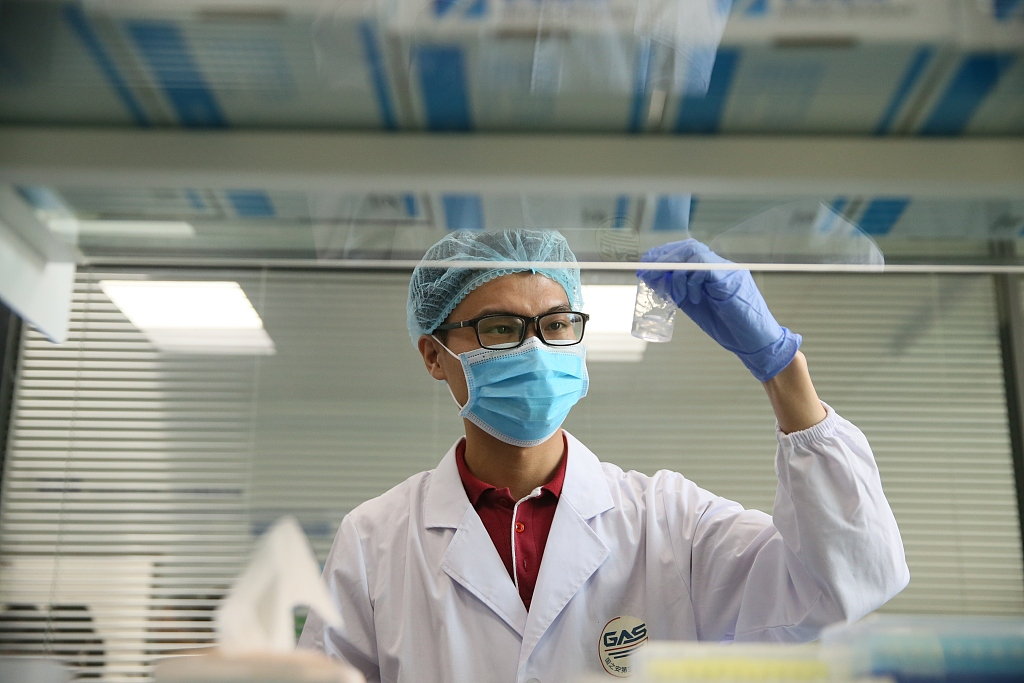

Gutter oil, cadmium rice, dyed fruits and water-injected meat… these are just some of the well-publicized food safety scandals that shocked China in recent memory.
For years, grocery shoppers in the country would check food packaging for sketchy ingredients, wonder how much pesticide is left on vegetables and know exactly which imported brands to reach for through word of mouth.
On other occasions, consumers might suspect whether something being sold as food is even edible.
National outrage over food safety erupted in 2008, when it was revealed that infant formula produced by a Chinese dairy brand had been contaminated with melamine, a toxic industrial chemical that resulted in tens of thousands of sick children and several deaths.
The scandal single-handedly devastated China's domestic dairy industry. Nearly a decade later in 2017, a report found 53 percent of people surveyed in 44 Chinese cities preferred foreign brands of baby formula. That's despite domestically made products passing quality inspection at a rate of 99.9 percent. But no one wants to take chances with their children.

Imported infant formula in a supermarket in Haikou, Hainan Province, May 24, 2015. /VCG Photo
With fears and distrust came widespread misinformation. Rumors about unsafe food often caught on quickly on Chinese social media. Shocking stories about "fake eggs" and pork floss made from cotton are still driving internet traffic long after they were dismissed by officials. When it comes to the food industry, one bad incident can decimate an entire sector, expert says.
"In fact, in this situation, 100 minus one is equal to zero," said Dr. Samuel Godefroy, a professor of Food Risk Analysis and Regulatory Policies at Laval University in Canada. "Today with social media… the mission of government authorities becomes very difficult, because you are one voice among many voices out there."
With the largest population in the world to feed, China takes food safety very seriously, having elevated the issue to a national strategy. From 2015 to 2018, the Chinese government adopted new laws and regulations related to food safety every year to address new areas such as Internet catering services. In 2017, a food safety plan was officially included in the country's 13th Five-Year Plan (2016-2020).
In addition to laws and regulations, concrete actions have been taken to encourage more supervision and transparency. China has initiated the "Open Kitchen" and "Clean Kitchen" campaigns which let customers watch their food being cooked in restaurants' kitchens. Food producers are required to list all ingredients on product packaging.
Public satisfaction has improved considerably in the past few years. Disqualification rates in random food safety inspections dropped from 5.3 percent in 2014 to 2.4 percent in 2018.

Local government bodies in Tai'an, Shandong Province launch a consumer event promoting quality takeout food, August 2, 2019. /VCG Photo
However, ensuring food safety and quality and rebuilding consumer confidence is a continuous work and a shared responsibility, Godefroy said, adding that there are common challenges, including man-made ones.
"We have many small farms. (The farmers) don't know how to use pesticides or attend drugs rightly. They don't know what food safety standards are, so they just use pesticides as they want," said Dr. Fang Yongxiang, director of the Center for Food Safety Standards under the China National Center for Food Safety Risk Assessment.
China uses 47 percent of all pesticides in the world, the majority of which are chemical. While developed countries have switched to greener and healthier biological options, only eight percent of all pesticides used in China are biological ones, and the average use of pesticides in unit farmland space is four times of that used in the United States.
The Chinese government is actively developing pesticide residue standards to improve the safety of agricultural products from the source. By 2035, China aims to become a world leader in food safety control.
There have been signs of progress. Currently, China is a host for a number of international standard setting committees, and has already adopted many international standards as the basis of its own regulatory requirements, noted Godefroy.

A food safety inspection lab in a university canteen in Heifei, Anhui Province, June 12, 2019. /VCG Photo
Misinformation is another challenge. There can be commercial interests associated with spreading rumors about food safety in order to undermine a competitor, an offense punishable by Chinese law, Godefroy said.
According to the State Administration for Market Regulation, more than 6,500 cases of food safety frauds were busted and more than 11,000 people arrested on fraud offenses in the first half of 2018.
More work needs to be done with capacity building, because food safety is an issue requiring continuous vigilance, said Fang. "Food safety is a very professional field, and you need to have enough scientific knowledge, or some background to know how to regulate and produce food," he said.
China proposes adopting the strictest criteria, supervision, punishment, and accountability for food safety control, and the food industry is directly responsible for consumers' well-being from the farmland to the dining table. On the other hand, Fang said that consumers also need to educate themselves about food, so that they become more informed and eat better.

Copyright © 2018 CGTN. Beijing ICP prepared NO.16065310-3
Copyright © 2018 CGTN. Beijing ICP prepared NO.16065310-3